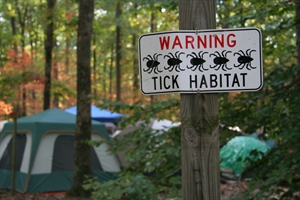Insect bites and stings can be incredibly painful – even more so if you have an allergy. But a painful or itchy rash is not the only thing you should worry about. Insects carry bacteria, viruses and protozoa that when passed on to a person via a bite can cause serious illness.
Luckily, there are some steps you can take to avoid being bitten by insect disease vectors.
First, find out what diseases occur in the regions you are visiting. Check Canadian Travel Clinic’s destination guides to start with. Then you should make an appointment at a travel health clinic and speak to a nurse adviser. Once they know all about your travel plans and what activities you have in mind, they can give you a tailored plan of advice and recommended vaccines.
When you arrive at your destination you should take note of local advice, too.
Here are some tips for avoiding the bites of specific disease vectors.
Tick-borne diseases
Ticks are small arachnids (spider relatives) are found all over the world. They feed on blood by attaching themselves to exposed skin. The list of diseases they carry includes: babesiosis, tick-borne encephalitis, Heartland virus, Lyme disease and rickettsial diseases.
Who is at risk from tick bites?
Outdoors workers such as agricultural and forestry workers are affected by tick bites. And tick bites are a risk for campers, hikers and mountain bikers.
How to avoid tick bites
Ticks are often picked up from undergrowth or long grass, so you should stick to beaten paths and avoid blazing your own trails through vegetation. You can use an insect repellent to discourage ticks. You should also cover your arms with long sleeves and tuck your trousers into your socks.
Mosquito-borne diseases
Mosquitos are small flies that troubled the dinosaurs of the Jurassic era and continue to make a nuisance of themselves in the present day. They feed on blood by piercing the skin with their sharp mouthparts.
What illness do mosquitoes carry?
Mosquitoes are vectors for Dengue fever, malaria, pogosta disease, filariasis, West Nile disease, Chikungunya fever and Zika.
How to avoid mosquito bites
You can avoid mosquito bites by applying a DEET insect repellent and wearing clothes with good limb coverage. Sleeping spaces should be netted or screened; or air conditioned so you can sleep with the windows shut.
Other insects
Assassin bugs in South America and Mexico carry Chagas disease. For avoidance advice, visit Chagas Coalition.
Plague outbreaks occur in various parts of the world. Fleas spread this serious disease and if you know you are visiting a place where there is an outbreak, apply a DEET insect repellent to avoid their bites.
Sleeping sickness occurs in 36 Sub-Saharan countries. Its vector is the tetse fly, which is not affected by insect repellents and can bite through thin clothing. However, beige and neutral-coloured clothing makes it hard for the tetse fly to see you: they are attracted to bright and dark-coloured clothing.
Can I get vaccinated against insect-borne diseases?
You can get a shot for the mosquito-borne diseases Japanese encephalitis and yellow fever. There is also a vaccine against tick-borne encephalitis. Chemoprophylaxis for malaria is available.
If you need these or other travel jabs in Calgary, a travel health nurse at Canadian Travel Clinics can help you.

